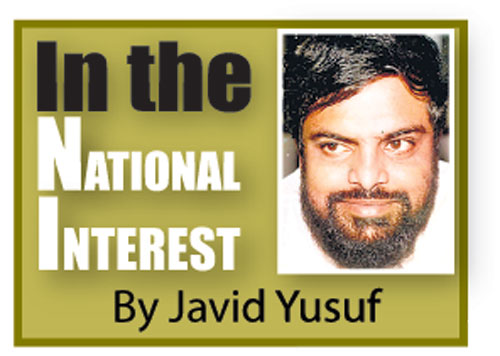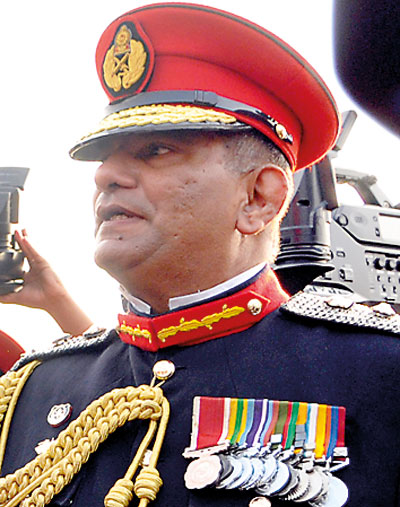News
Jagath Jayasuriya episode highlights urgent need to address post-war issues
Allegations of human rights violations by the armed forces and Police have been a recurrent thorn in the flesh of the Government during the three-decade-old armed conflict. This is no different to the situation in any country which has faced the unpleasantness of an armed conflict. In the 1980s, in particular, Sri Lanka was accused of serious human rights violations and calls were even made by human rights groups for donor countries to make improved human rights compliance as a condition for aid.
Such allegations of human rights violations were made not only in respect of the North and East but also in relation to the JVP-led uprising in the south in 1988 and 1989. With increased international attention on Sri Lanka due to its poor human rights record, Governments of the day did take some steps to remedy the situation.
An Amnesty International delegation which visited the country soon after the southern insurrection in the late 80s made more than 40 recommendations for action by the Government. President Ranasinghe Premadasa took prompt action to implement several of those recommendations.
During the presidency of Chandrika Bandaranaike Kumaratunga, the armed forces were given intense training in human rights and humanitarian law through the good offices of the ICRC, resulting in increased compliance with human rights norms by the armed forces. The setting up of the Human Rights Commission in 1997 was another step in the right direction in Sri Lanka’s struggle to keep a positive profile in the international human rights scene.
The late Lakshman Kadirgamar as Foreign Minister kept a close tab on the human rights situation in the country and this helped to keep international detractors at bay. Eventually he was able to win over the international community and successfully counter the LTTE propaganda.
Using his diplomatic skills Kadirgamar was able to showcase the efforts of the Government to improve human rights compliance as part of the Government’s foreign policy thrust. One of the lessons of the Kadirgamar tenure was that the efforts of a Foreign Minister are greatly enhanced if his Government takes genuine steps to improve the human rights situation at home.
The post-war international pressure on the country, since May 2009, has been primarily due to the deteriorating situation at home both in respect of civil and political rights in general and the allegations relating to human rights violations during the final days of the armed conflict. Even positive achievements of the armed forces such as rescuing the 300,000 civilians used as a human shield by the LTTE could not be used effectively by the Government to mitigate the allegations levelled against the security forces by human rights organisations.

Former Army Chief and ambassador Jagath Jayasuriya
This was mainly because of the then Government’s confrontational approach to deal with the international community without a clear foreign policy strategy. Another factor that undermined the then Government’s efforts was the failure to utilise the expertise and skills of the Foreign Service in this task but rather rely on political greenhorns who conducted our foreign relations in the same manner they conducted their politics. The country paid dearly for this and has still to extricate itself from this mess.
The pressure on the country was primarily fuelled by the activities of the pro-LTTE diaspora who worked relentlessly by lobbying foreign Governments, human rights groups and civil society groups to turn the tide against Sri Lanka.
Sri Lanka’s policy makers failed to realise that citizens in the democratic West had a keen sense of justice and if one could convince the public in those countries that the Tamil civilians had been oppressed, they in turn would put pressure on their Governments on behalf of such victims. In addition, the impressions of large sections of the Tamil diaspora in those countries about the land of their birth were frozen in time with the memories of the bad days of the 1983 riots.
Little or no effort was made to convince them that much water had flown under the bridge since 1983 and that there had been some improvement in some areas. For example, some degree of devolution of power through the 13th Amendment had been implemented. But what was critical in the post-May 2009 period was to win the hearts and minds of the Tamil people and begin the process of healing the hearts of the victims of war.
Instead, the Government thought that mere rebuilding of infrastructure without taking the initial steps to give dignity to a community that was demoralised was sufficient. These mistakes apart from failing to win over the populace in the war-affected areas also resulted in the loss of support for the Government at the last elections.
The war crimes suit filed against former Army Commander and Ambassador to Brazil Jagath Jayasuriya last week highlighted the fact that we are still not out of the woods with regard to allegations of excesses committed on the battle field. Although there are media reports that a suit has been lodged against him there is no independent confirmation with regard to the details of such suit.
The fact that a suit has been lodged at the very end of his term as ambassador suggests that it may have been designed more to harass than to actually pursue action against him. This type of wildcat strikes against officials of the armed forces and high profile politicians of the previous regime are likely to occur on and off unless and until every allegation is probed by credible institutions in Sri Lanka thus bringing about closure to the whole issue.
Merely attempting to shut out inquiries by claiming that they are unsubstantiated or baseless will not help. Even complaints which later turn out to be baseless are entertained and inquired into by the Police in the case of ordinary crimes. In the case of allegations against members of the armed forces, it is in the interest of the military itself to clear its good name through credible investigations.
The issue of war crimes and human rights violations as a fallout of the end of the armed conflict keeps recurring and has to be addressed once and for all. The previous Government made a hash of it by not handling it professionally. Rather than making a realistic assessment of the situation and handling the issue diplomatically, it adopted a confrontational approach, thus alienating influential sections of the international community.
In fact, the previous Government made at least two fundamental mistakes in its approach. The first was that it never clearly and specifically denied the allegations of war crimes but rather chose to claim high ground by stating that the Government and armed forces were being targeted only because they defeated the LTTE.
The second mistake was that towards the end of the war, the Government cleared the conflict areas of all aid workers, UN officials and declared the areas as no-go areas for the media. As a result it became a war without witnesses which had potentially negative consequences for the Government.
Since there were no independent third parties allowed in the conflict areas during the last days of the war, any allegations could not be independently verified. Thus all sorts of allegations and figures of casualties have been thrown around with pro-LTTE groups having a field day.
The present Government has obtained some breathing space from the UN Human Rights Council and the international community because of the trust it has generated as a result of its positive approach to issues of accountability and reconciliation. But it needs to speed up the process by addressing all the issues relating to the conflict with a greater sense of urgency. Otherwise there could be more issues like the Jagath Jayasuriya episode cropping up.
(javidyusuf@gmail.com)

